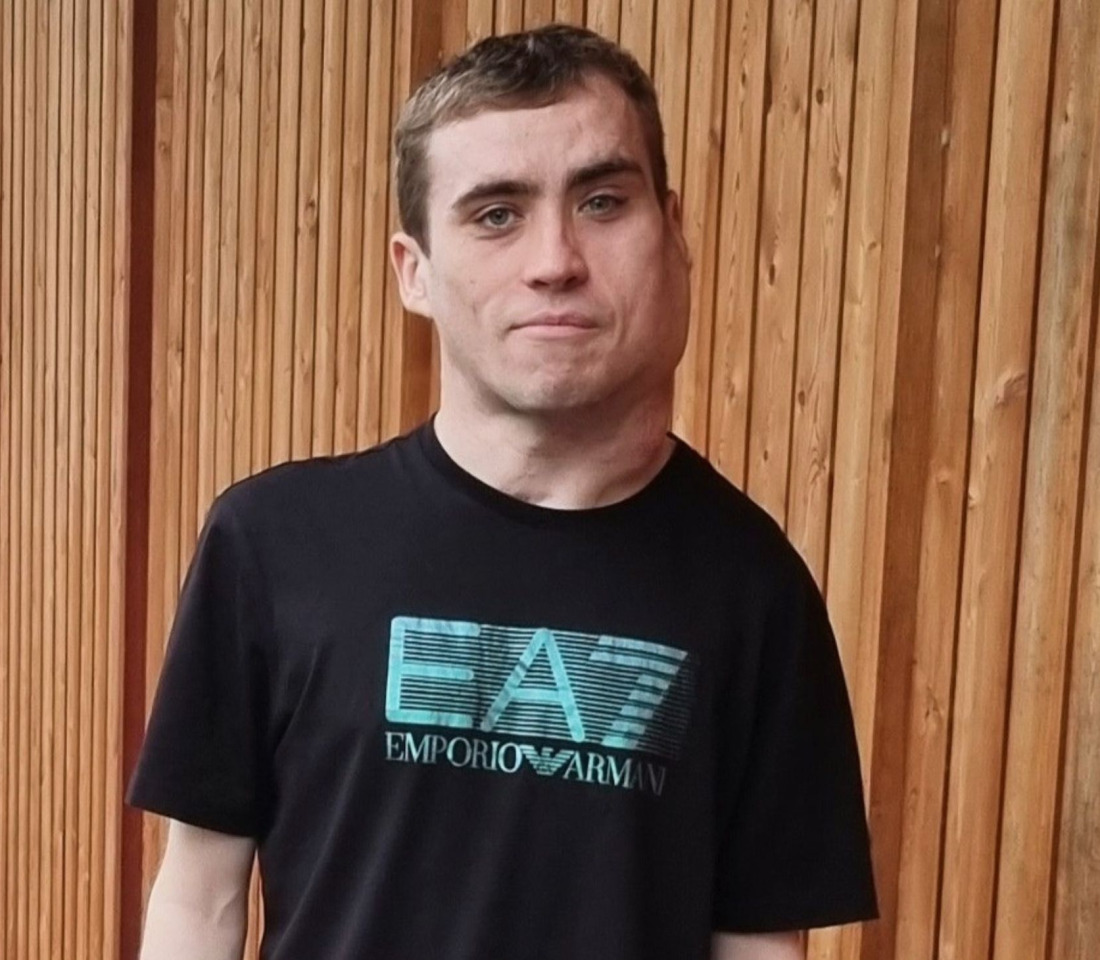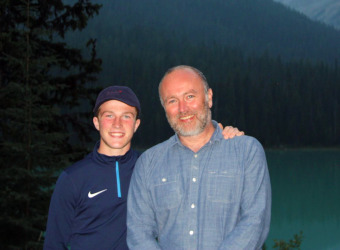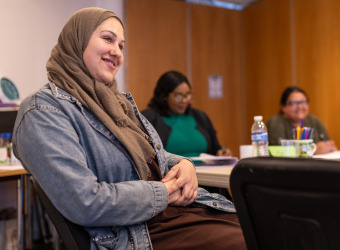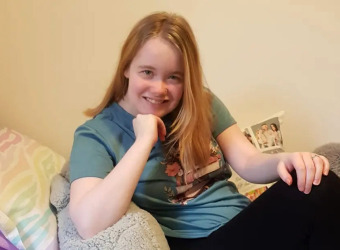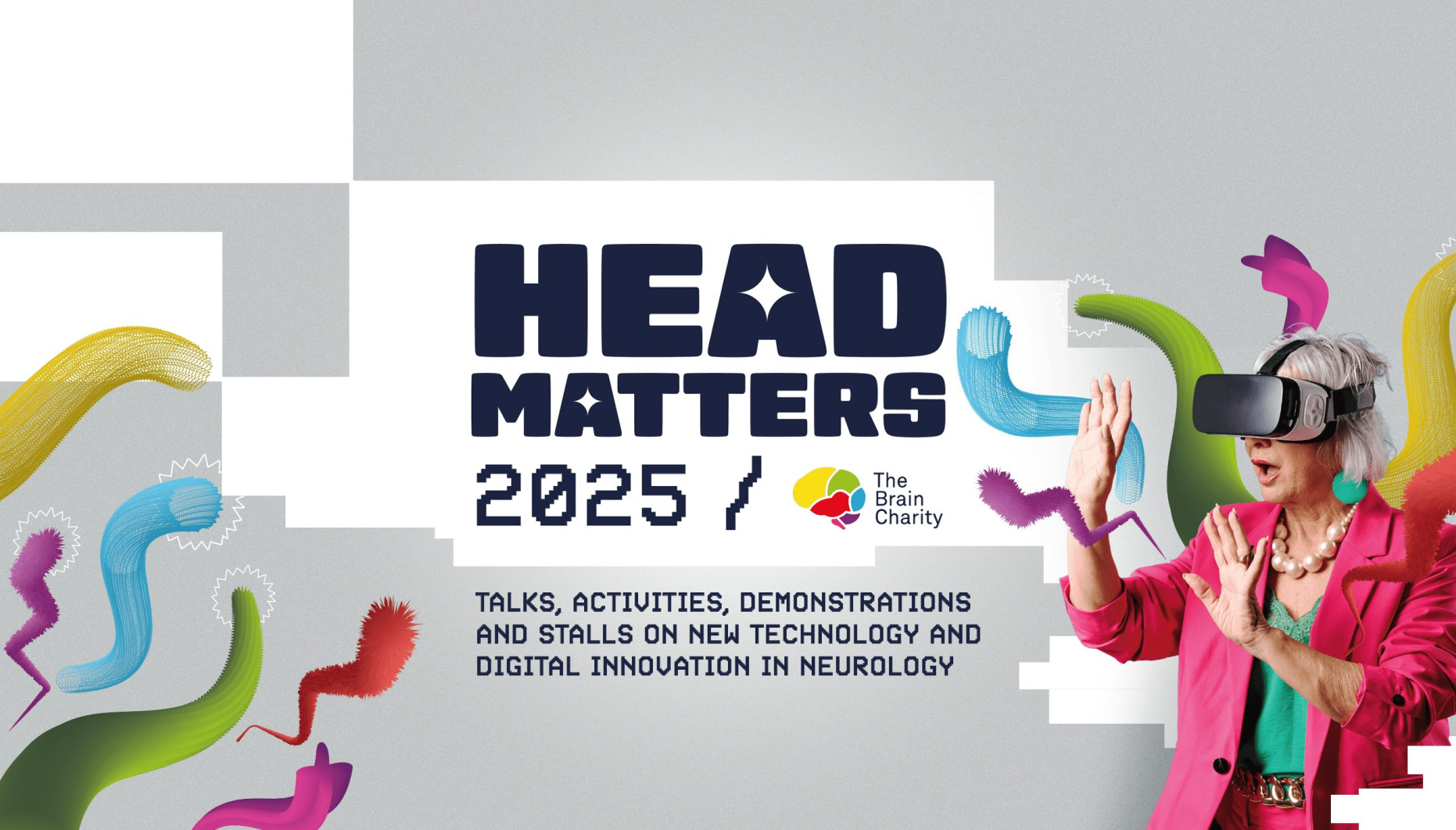
World-renowned specialists to headline Head Matters 2025 at The Brain Charity
Technology and innovation in neurology explored
Head Matters, The Brain Charity’s annual open day, is back for 2025, bringing together experts, innovators, and those affected by neurological conditions for an inspiring day of talks, activities, and cutting-edge demonstrations. This year, we are focusing on new technology and digital innovation in neurology, offering visitors a unique opportunity to engage with leading specialists in the field.
Join us on Wednesday, March 12th, from 10 AM to 4 PM at our Norton Street, Liverpool centre for a day packed with insight and innovation.
One of the highlights of Head Matters 2025 is our stellar lineup of guest speakers. Let’s take a closer look at the experts sharing their knowledge and groundbreaking research at this year’s event.
Join us at Head Matters 2025!
Whether you are living with a neurological condition, caring for someone who is, or simply fascinated by the brain and its possibilities, Head Matters 2025 is the event for you. This is your chance to hear from world-leading experts, participate in engaging discussions, and witness groundbreaking innovations firsthand.
Date: Wednesday, March 12th, 2025
Location: The Brain Charity, Norton Street, Liverpool
Time: 10 AM – 4 PM
RSVP: Let us know you’re coming and inform us of any accessibility needs.
Professor Penny Lewis – Sleep, memory & mental health expert
A leading voice in sleep science, Professor Penny Lewis has dedicated her career to uncovering how sleep shapes memory, creativity, and mental well-being. As the author of The Secret World of Sleep: How the Nighttime Brain Creates Consciousness and the presenter of the Sleep Science Podcast, Penny’s work explores how we can harness sleep to enhance cognition and even improve mental health conditions such as Depression and PTSD.
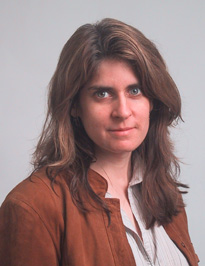
Key areas of Penny Lewis’s research:
- Sleep Engineering for Health and Cognition – Learn how manipulating sleep patterns can enhance memory, creativity, and overall well-being.
- How Sleep Changes Our Memories – Explore how the brain strengthens and reactivates memories during sleep.
- Tackling Depression and PTSD with Sleep Engineering – Discover how sleep can be a powerful tool in treating mental health conditions.
- How Sleep Boosts Your Creativity – Understand the link between sleep, problem-solving, and innovative thinking.
- How to Optimise Your Sleep – Practical tips on sleep hygiene, environment, and emerging technologies that can help improve sleep quality.
With over 1.8 million views on her TEDx talk, Sleep-Engineering: Improve Your Life By Manipulating Your Sleep, Penny Lewis is set to deliver a thought-provoking discussion that could change how you think about sleep forever.
Professor Damien Coyle – Advancing brain-computer interfaces
Bringing the latest in neurotechnology and AI, Professor Damien Coyle is a leading figure in the development of brain-computer interfaces (BCI). As Professor of Neurotechnology at the University of Bath and Founder & CEO of NeuroCONCISE Ltd, his research focuses on transforming how we assess and assist individuals with neurological conditions.
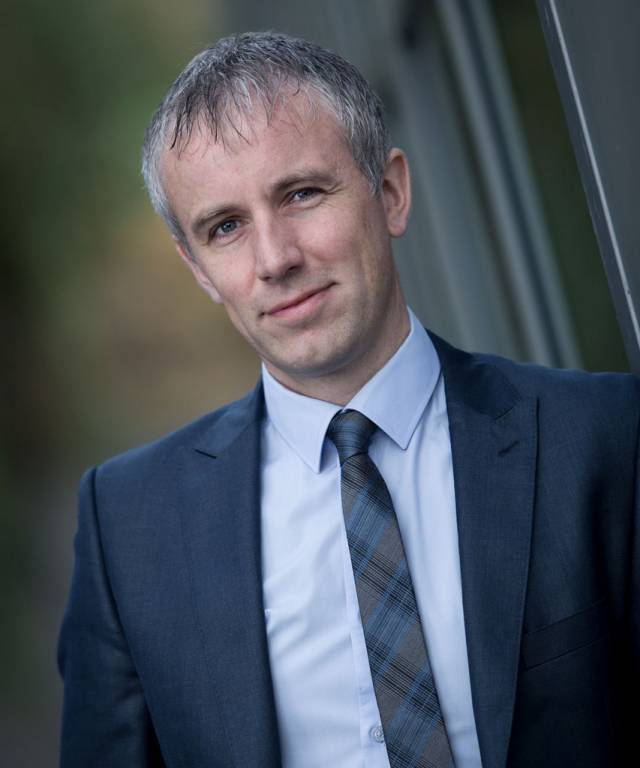
Key areas of Damien Coyle’s research:
- AI-Enabled Brain-Computer Interfaces (BCIs) – How BCIs are helping patients with brain injuries regain communication and cognitive abilities.
- Awareness Assessment after Brain Injury – Insights on patients with prolonged disorders of consciousness (PDoC), including those with minimally conscious state (MCS), unresponsive wakefulness syndrome (UWS), and locked-in syndrome (LIS).
- BCIs for Rehabilitation and Assistive Technology – How BCI innovations improve mobility and independence for those with neurological conditions.
- Neurogaming for Cognitive Training – How gamification is being used to help patients train their brain activity and improve outcomes.
A Royal Academy of Engineering Enterprise Fellow and recipient of multiple prestigious international awards, Professor Coyle’s work is paving the way for the future of neurotechnology and patient care.
Alex Keyter – Assistive AI for neurological conditions
Alex Keyter is the founder of Generative Minds, a training & consultancy business that works to ensure that nobody is left behind in the age of AI. As an AI engineer & software developer turned educator and public speaker, he is passionate about supporting others to thrive by leveraging technology for good.
By combining deep technical knowledge with a range of academic interests including languages, neuroscience, psychology, and philosophy, Alex approaches challenges through an interdisciplinary and innovative lens. This enables him to design, develop, and deliver engaging training and technological solutions that address some of our biggest challenges while still maximising the role of human intelligence.
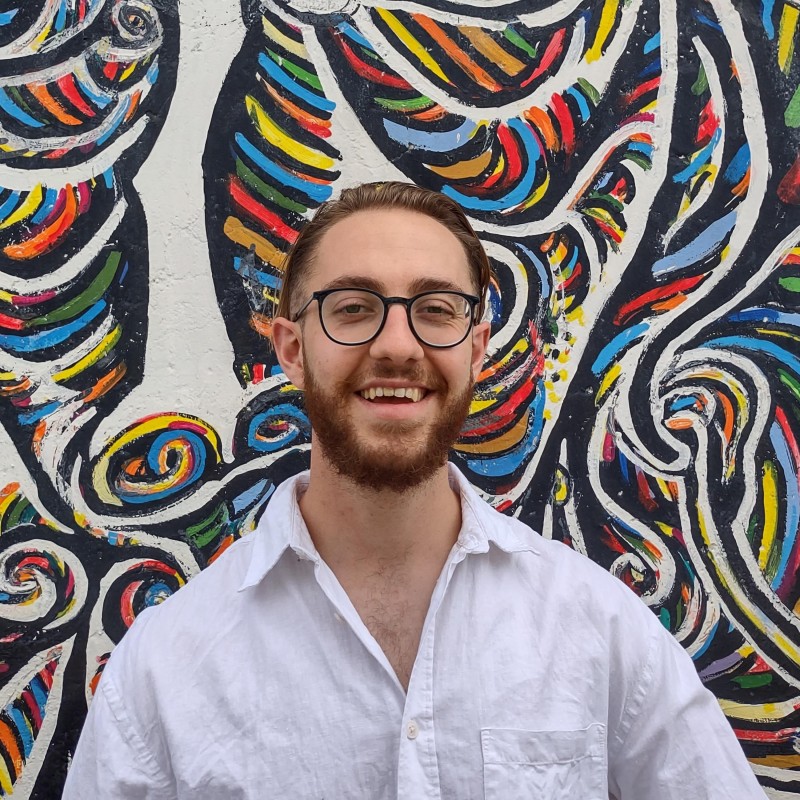
Within the wider community, Alex hosts bi-monthly AI & Tech for Good events in partnership with Goodship, a digital collaboration agency. He also works as a sessional MBA lecturer at Liverpool John Moore’s University, where he teaches Big Data, Business Intelligence, Business Innovation, and Artificial Intelligence.
When he’s not supporting businesses, community groups, and entrepreneurs to thrive in the age of AI, you can find him tinkering with electronics and 3D printers, writing poetry, or cooking up a storm in the kitchen. He also enjoys exploring new AI trends and working on open-source software projects.
Key areas of Alex Keyter’s research:
- Framing Difficult Conversations – Using tools like Claude AI to structure thoughts and emotions when discussing symptoms, care needs, or medical decisions.
- Emotional Support & Reframing – AI tools can be used as a sounding board and provide first-line support for challenging circumstances. These dialogues can be verbal as well as written.
- Smart Research & Community Support – Leveraging AI-powered tools like Perplexity AI to find reliable health insights, treatment options, and local support networks.
- The Future of Assistive AI – A Look at emerging innovations, from speech-to-text Tools to brain-computer interfaces, that are reshaping accessibility and independence.
This session will highlight real-world AI solutions and use cases that can help people with neurological conditions (and those who support them) improve communication, gain knowledge, and enhance their quality of life.
After our three guest expert speakers have concluded their talks our CEO Pippa Sargent will be leading a panel discussion (Neurotech futures – friend or foe) from 3:15pm – 3:45pm. The panel will focus on tech and digital innovation in neurology.
Head Matters 2025 will also feature a number of stalls and tech demonstrations. Head up to The Brain Charity’s Neurogym throughout the day for a series of short demonstrations showcasing cutting-edge health and wellness technologies.
Here’s what you’ll see:
- ONION.AI: Explore the AI health companion app that’s revolutionizing personal health management.
- ADDHERE Technologies: Learn about their ADHD diagnosis app.
- MyndPlay: Dive into the MyndHub neurofeedback system and experience brainwave VR and mind-controlled video storytelling.
- Spire: Neuro-spinal cord stimulation for chronic pain relief.
- HMA Technologies/University of Liverpool: Exoskeleton technology
We look forward to welcoming you to an unforgettable day of learning, discovery, and connection!


